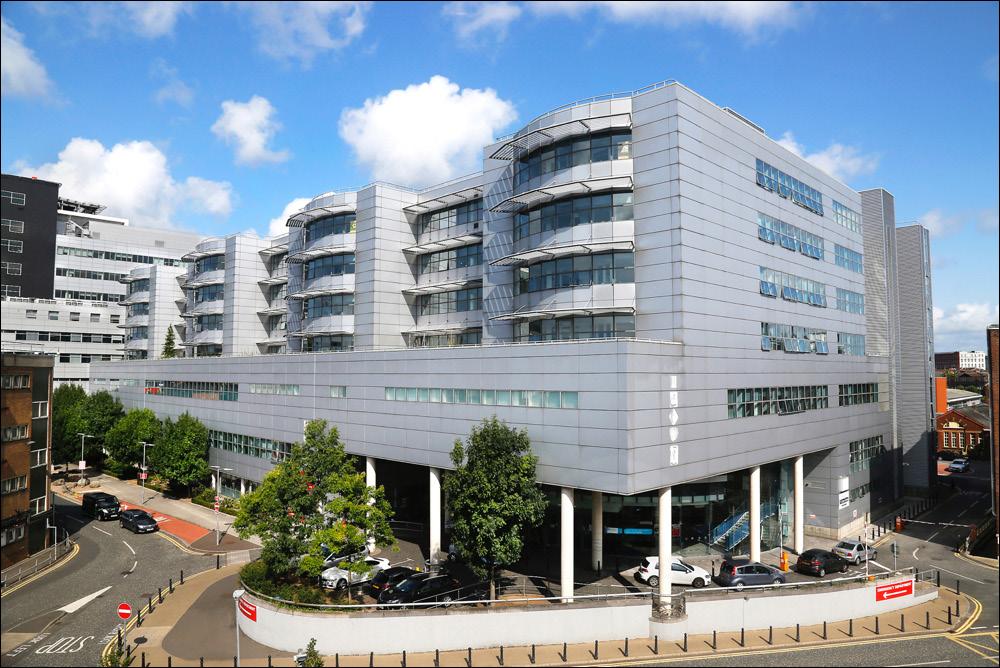
6 minute read
Chaplaincy is a vital mission strategy
Norman Harrison looks at the exciting missional opportunities in the world of chaplaincy.
As Presbyterians, we are rightly proud of a long and shared history of mission. As a young Christian in Christ Church, Dundonald, I was blessed to benefit from the ministries of Rev Jim Waring, former missionary in Jamaica, and Rev Robin Quinn, former missionary in Malawi. As assistant minister in Dungannon, I was blessed by the example of Max and Alison Watson, and David and Sandra Rodgers who served in Nepal, as well as Rosemary Clements from Clogherney, in my first charge. My wife Janet and I wondered about mission in a foreign field, and when we went to Kenya to develop a congregational partnership project, we fell in love with the people there and the red earth, yet our call did not come. John Finlay, a former elder in my second charge, High Street, Holywood, was an inspiration. His achievements for Interserve in Nepal are the stuff of legend. When I led the Ards Presbytery Kenya team, building churches and schools, there was still no overseas call, yet mission has always been a core goal for me, both in congregational life and in chaplaincy. I have come to understand that chaplaincy is not just the ‘add-on’ on the side of ministry. Rather, it is, in its own right, a professional mission role.
…chaplaincy is…a professional mission role.
I learned a lot from missionaries abroad: mostly, that the role does not mean repeating the same things ministers do in churches. For some, there is some cross-over, but for most it is healthcare, engineering, skills development, theological education. Mission takes many forms in various situations.
Traditionally, chaplaincy was associated with the armed services, prisons and with the NHS/HSCNI. Suitably qualified individuals, usually ministers and deaconesses, have taken up such roles. Today it extends into the arenas of sport, the workplace, business, town centres, street outreach, rural community engagement – simply put, chaplaincy is now operating where people are. And what is mission if it is not going to where people are and offering them spiritual and religious care? Offering them hope and help when they are bereaved, injured and hurting, where relationships are breaking, where the traumatic events of life are wreaking havoc emotionally, physically and spiritually. Where else would Jesus go in our society to bring grace, healing and hope? I have come to the view that chaplaincy is postmodern mission. And where there is mission, there is a calling. The Lord instructs us to: “Go!”

When we think of how the Church should be going out into our postmodern world, we have got to think out of the box. How can we reach more broadly into our world using the gifts and skills of our members, at a time of greater limits on our resources? We invest heavily in training – pastors, teachers and outreach workers – and these skills we look for and develop are a valuable commodity, not only to us, but also to many organisations. If we desire a presence in the public square, then perhaps we should partner more with public and other bodies to provide personnel with the skills which will benefit their teams, but also serve our call as a Church.
committed Christians with a witness to Christ.…what is mission if it is not going to where people are?
Chaplaincy is also cross-cultural mission. It used to be that missionaries went to unevangelised fields, but how many of these are now on our doorstep? In healthcare chaplaincy, less than a third of those we see (and our numbers have risen sharply recently) are people who still connect to a local congregation. Like those who serve overseas, or who are sent to other parts of Ireland, chaplains enter a crosscultural world, interacting with those of all faiths and none, yet doing so as committed Christians with a witness to Christ.
We operate as professionals in our chosen field. These days, you need professional training to qualify for chaplaincy roles and placements, which allow you access to training. Other denominations have understood this and for years have been ahead of the game, often becoming established in jobs and senior roles where they have been able to shape the services they represent.

I would encourage PCI to look at chaplaincy in a new light, and to revise its approach to how this can be a strategic way to engage proactively in public–private partnerships. Chaplaincy has the potential to become an integral part of the care and wellbeing of staff, whether in local emergency services or larger employers. Chaplains add value and are value for money to employ. In healthcare, the Lothian report demonstrated clearly how the costs of operating a chaplaincy service were more than covered by the cost savings per client engagement. In short – it’s cheaper to have chaplains than not to have them. We need to promote chaplaincy as a valuable service to organisations willing to partner with us – we supply the trained and experienced personnel, and the organisations get a support service to help care for employees, boost productivity, reduce absence, and encourage retention.
What is most unappreciated about chaplaincy is that our ministry reaches out, not only to the person, but to the people surrounding them. The challenge to the Church is to see this mission role in the same light as those who serve in mission overseas. Chaplains operate in a sphere where our belief system may not predominate and it’s also outside the usual boundaries of denomination and congregation. However, we do get to attend to people’s needs and get invited into their personal spaces. We also get to show, by our example, how to provide self-care. From my experience and that of colleagues, the constraint of working in a secular organisation does not dampen the effect of our mission, which has been and continues to be more than fruitful.
As Christian professionals, chaplains contribute positively to the organisations we serve, evidenced clearly during the pandemic. Our innovations enhance services to staff and patients, with website development, helplines, bereavement calls, literature, media work, and support materials produced. As we invest in, and show our worth, we become embedded in new fields of mission where God is clearly at work. My question to our Church is – just how wide and how far can you see this particular strategy for mission extend?
As I see it, the limit is only in us, not in what God can do and where he can go. Which situations could he be sending us into?
Rev Norman Harrison is Presbyterian chaplain at the Royal Group of Hospitals, Belfast and lead chaplain with the Northern Trust.


